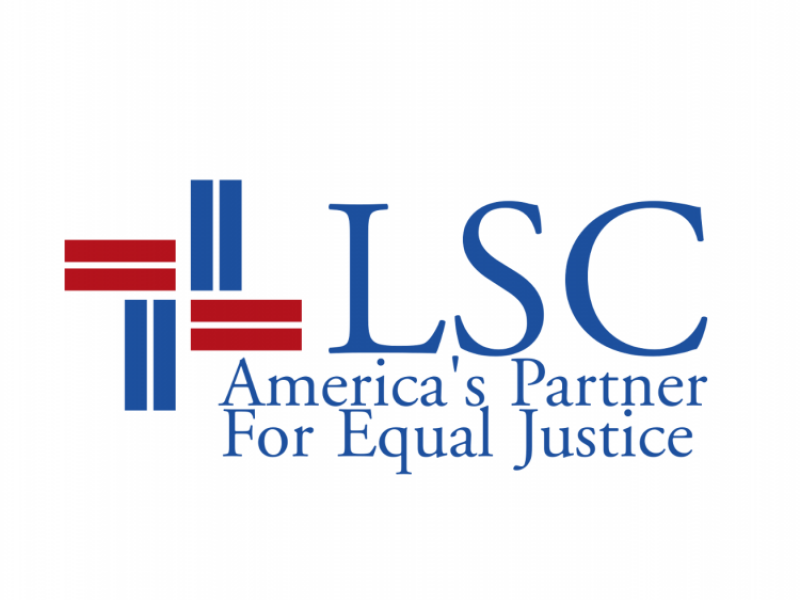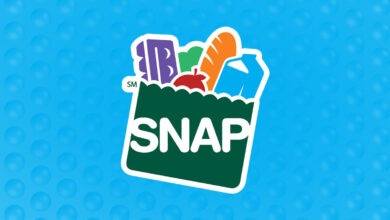
Legal Services Corporation Awards Technology Grants
$4 Million to Strengthen Legal Aid to Low-Income Americans
The Legal Services Corporation (LSC) announced today that it is awarding 36 Technology Initiative Grants (TIG) to 29 legal services organizations totaling $4,268,938. These funded projects will provide greater access to high-quality legal assistance for low-income Americans and enhance the operations of legal aid organizations around the country.
Established in 2000, the program distributes grants annually to LSC-funded legal services providers. Since the program’s inception, LSC has awarded 826 grants totaling more than $77 million to fund technology projects. Grant recipients have used this funding to create innovative ways to better serve clients, strengthen program capacity and support the work of pro bono attorneys.
“Legal Services Corporation’s Technology Initiative Grants support projects that improve the delivery of legal services and information to people who would otherwise have to navigate the legal system alone,” said LSC President Ronald S. Flagg. “These projects use technology to leverage scarce human resources and increase access to justice for low-income individuals and families facing critical legal needs such as unemployment, evictions, or domestic violence.”
Members of Congress congratulated legal aid organizations in their states or districts for receiving TIG funding.
“Kansas Legal Services goes above and beyond to serve those in need, and I applaud the Legal Services Corporation for investing in the expansion of their mission in my home state,” said Kansas Sen. Roger Marshall. “Through these substantial Technology Initiative Grants, KLS will be able to better communicate with the clients they are advocating for, as well as provide a safe space for domestic violence survivors to communicate parenting details and time exchanges. These are essential developments that are sure to help Kansans in their time of need.”
“Without equal access to legal resources and representation, there is no justice for all,” said Connecticut Sen. Chris Murphy. “This federal funding will help LSC leverage technology to match Connecticut attorneys with people in Connecticut who need access to legal aid. As a member of the Senate Appropriations committee, I’m continuing to push for more funding for LSC so they can continue to do their important work in our state.”
“It’s great news that Bay Area Legal Services was awarded this Technology Initiative Grant, which will help educate and empower youth in foster care throughout the state,” said Florida Sen. Marco Rubio. “I am grateful to Legal Services Corporation for their commitment to serving the foster care community and survivors of domestic violence.”
TIG funding will support the development of new tools for vulnerable populations. Northeast Legal Aid in Massachusetts will use TIG funding to develop a new app to assist low-income tenants facing poor housing conditions. Bay Area Legal Services will use its grant to develop a web and mobile platform that empowers youth in foster care throughout Florida.
Other TIG-funded projects will bolster existing case management and online intake systems to allow legal services providers to more effectively serve clients.
The 36 TIG projects are:
Alaska
Alaska Legal Services Corporation will use a $35,000 grant to undertake a comprehensive technology assessment and security audit to evaluate its use of technology, including hardware, software, staffing, security, and support. It will use the assessment and audit recommendations to update its technology plan and develop strategies that will address current inefficiencies, respond to immediate technology needs, and create steps to achieve long-term technology goals.
California
Community Legal Aid SoCal will use a $114,668 grant to enhance technological competency across the organization’s attorneys and staff by routinely testing software applications and the systems necessary to effectively serve clients. Based on these assessments, staff and volunteers will receive customized technology training that addresses any deficiencies in their knowledge.
Connecticut
Statewide Legal Services of Connecticut will use a $150,593 grant to create a cloud-based pro bono portal. The portal will connect attorneys with pro bono opportunities offered by Statewide Legal Services and other legal aid organizations in the state. Organizations will be able to publish case summaries and other volunteer information to attract new volunteers whose expertise may fit their needs. Volunteers who visit the portal will be matched automatically with cases and organizations that fit their skills, experience, and location.
District of Columbia
Neighborhood Legal Services Program’s $343,306 grant will allow it to create a secure, user-friendly coordinated intake and referral system for residents facing a civil legal issue. The web application will help people find legal aid from more than 50 organizations providing legal services in D.C.
Florida
Bay Area Legal Services will use a $274,032 grant to develop a web and mobile platform that empowers youth in foster care throughout Florida. The tools will increase youth awareness of their important legal rights—such as education and employment-training benefits—and educate them on various legal protections that help ensure their safety and well-being. The platform will provide foster youth with several online self-help tools, including online videos and interactive interviews.
Community Legal Services of Mid-Florida, Inc. will use a $35,000 grant to expand existing information security efforts and protect the organization against the ever-increasing threat of cyberattacks. The project will include the drafting and adoption of security policies, an audit of current technology usage and needs, and the development and implementation of a staff training plan.
Legal Services of Greater Miami’s $177,774 grant will support technology that strengthens the Florida Community Development Legal Project, a statewide collaborative that focuses on free and low-cost legal services for lower-income small business owners and other groups. The project’s goal is to enhance economic opportunities and community services. The grant will help improve collaboration and the overall delivery of services.
Georgia
Atlanta Legal Aid Society will use a $267,374 grant to enhance its intake and client interview systems to allow staff and volunteers to conduct centralized intake, screening, and legal advice for family law applicants. Improvements will be developed for both the organization’s online case management system and for GeorgiaLegalConnect.org, a virtual client consultation portal that allows attorneys to connect with clients remotely.
Hawaii
Legal Aid Society of Hawai’i will receive two grants. It will use a $93,290 grant to support Legal Navigator, which employs artificial intelligence and other cutting-edge technologies to help states guide low-income individuals to the best forms of legal assistance available. The grant will allow the organization to create an administrative system for the long-term maintenance and development of the tool. The project will also create pathways for new states and partners to utilize Legal Navigator.
The organization will use a second grant for $75,665 to redesign its intake system to better use technology and ensure that intake is accessible to all eligible residents.
Illinois
Land of Lincoln Legal Aid will use its $26,878 grant to conduct a technology assessment to review current IT architecture and create a technology improvement roadmap, including plans to enhance cybersecurity. This project will help further establish technology as a core competency necessary to maintain and improve service delivery to the organization’s clients.
Legal Aid Chicago is receiving two grants. The first $155,969 grant will support the Digital Triage Hub, a user-friendly triage and intake platform that combines case-priority screenings and follow-up with digital self-help tools. The project will focus on increasing legal understanding and improving outcomes among lower-income people facing domestic violence, unemployment, bankruptcy, and subsidized housing issues.
A second grant for $35,000 will allow Legal Aid Chicago staff to work with an outside expert to audit the cybersecurity controls for the organization and better protect it from cyber threats.
Kansas
Kansas Legal Services is receiving two grants. It will use a $172,743 grant to create a text-based communication system to assist domestic violence survivors by enabling parents who are under court restrictions to securely communicate parenting time exchanges. The system will help monitor and deescalate language used between the parents and offers a private channel for survivors to quickly reach their legal aid advocate.
A second grant for $20,000 will allow Kansas Legal Services to work with an expert evaluator to conduct a full technology assessment of the organization’s statewide communications systems.
Kentucky
Legal Aid Society’s $35,000 grant will allow it to conduct a comprehensive technology needs assessment to identify opportunities for improvements in client access to services. The assessment and resulting action plan will allow the organization to better understand the barriers that the low-income community currently faces and determine which technological innovations will broaden the Legal Aid Society’s impact and effectiveness.
Louisiana
Southeast Louisiana Legal Services Corporation’s $32,359 grant will allow it to work with an expert to assess and improve the security of its technology. Building on recommendations from a current pro bono cyber security project, the organization will develop and implement an organization-wide technology plan to ensure it maintains stronger security practices in the future.
Massachusetts
Northeast Legal Aid will use a $185,000 grant to develop a new app to assist low-income tenants facing poor housing conditions. The app will guide tenants through the process of notifying landlords about substandard conditions and provide them with the tools to bring legal claims in the Massachusetts Housing Court. It will also create several customized legal forms, from a demand letter to a temporary restraining order, which can be filed with the housing court.
Maine
Pine Tree Legal Assistance’s $35,000 grant will allow it to conduct a comprehensive IT assessment and create an improvement plan for its use of technology across the state.
Michigan
Legal Aid of Western Michigan’s $30,000 grant will allow it to work with an outside consultant to conduct a technology assessment and information security audit to address the organization’s technological needs and ensure its protection from emerging cyber threats.
Michigan Advocacy Program will use its $244,993 over the next 18 months to enhance the new JusticeServer Case Management System that legal services providers across Michigan can use. The grant will enhance the system to address critical needs, such as creating tools that allow advocates to securely obtain and share documents with clients remotely for review and signature. It will also allow more organizations to participate in the statewide pro bono portal.
Minnesota
Southern Minnesota Regional Legal Services will receive two grants. It will use a $163,606 grant to integrate Documate, an application that automates document creation, and the LegalServer case management system. The integration will allow attorneys to edit family law and public benefits documents based on information provided by clients. This will increase the accuracy of the organization’s legal assistance and allow it to provide additional services to eligible clients.
A second grant for $28,600 will allow Southern Minnesota Regional Legal Services to conduct an audit of the organization’s IT security hardware, software, and protocols and establish a roadmap for improving its security posture.
Montana
Montana Legal Services Association will use its $234,514 grant to create a new “online front door” website that consolidates all its technology services, websites, and tools into one easy-to-use web-based portal. The project will enhance access to the organization’s virtual and in-person services and improve pro bono coordination and referrals across the state.
New Hampshire
603 Legal Aid will use a $29,300 grant to conduct a security audit to detect vulnerabilities, enhance security and implement policies to protect against cyberattacks.
Ohio
Community Legal Aid Services will receive two grants. A $218,621 grant will allow it to develop and implement a Virtual Pro Bono Hub for Ohio’s statewide legal information portal, OhioLegalHelp.org. The hub will act as a secure mobile platform for pro bono attorneys to respond to client communications and review and provide one-on-one guidance on court forms.
The organization will use a second grant for $35,000 to perform a full technology and security assessment.
Ohio State Legal Services will use a $265,000 grant to support LawHelp Interactive, a national document assembly platform used in more than 40 states by more than one million people. It is a free service that allows self-represented litigants, lawyers, and self-help programs to create, e-file, and share via email high-quality online forms.
Oregon
Legal Aid Services of Oregon will use a $244,965 grant to partner with the Oregon State Bar, Oregon Law Foundation, and the Oregon Judicial Department to develop a new legal information portal. The portal will be the primary online referral site for Oregon residents facing legal issues. It will provide access to legal information, self-help resources, and legal services providers.
Pennsylvania
Neighborhood Legal Services Association will use a $35,000 grant to assess its IT environment and determine how it can improve its technology to better serve clients, support advocates, and increase overall efficiency.
South Dakota
East River Legal Services will use a $35,000 grant to perform a technology assessment and security audit.
Tennessee
Legal Aid Society of Middle Tennessee and the Cumberlands will use a $134,529 grant to produce multi-language, online legal information videos for low-income residents of Tennessee. The project will incorporate technology that works across mobile devices, tablets, and desktop computers. Legal Aid Society will partner with organizations across the state to ensure the videos reach a wide audience.
Virginia
Blue Ridge Legal Services will use a $34,997 grant to conduct a full technology assessment and IT security audit to identify opportunities for improvements.
Washington
Northwest Justice Project will receive two grants. The first for $244,155 will enable attorneys to share knowledge and resources via a statewide information management system. The organization will hire a knowledge management expert to help create a secure, comprehensive document system in Microsoft SharePoint.
A second grant for $26,000 will allow Northwest Justice Project to improve its cybersecurity, ensuring that key systems and information are protected from emerging threats.
Legal Services Corporation (LSC) is an independent nonprofit established by Congress in 1974 to provide financial support for civil legal aid to low-income Americans. The Corporation currently provides funding to 132 independent nonprofit legal aid programs in every state, the District of Columbia, and U.S. territories.






